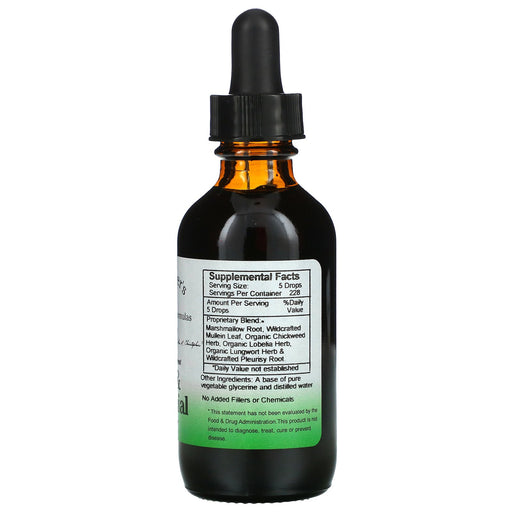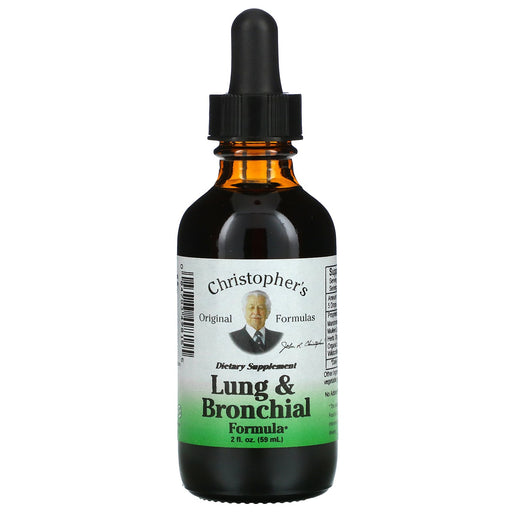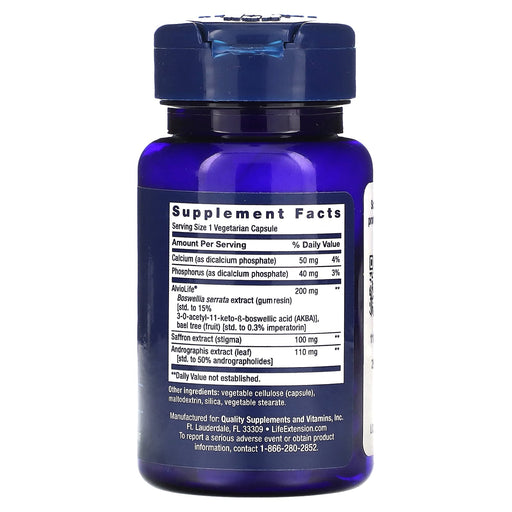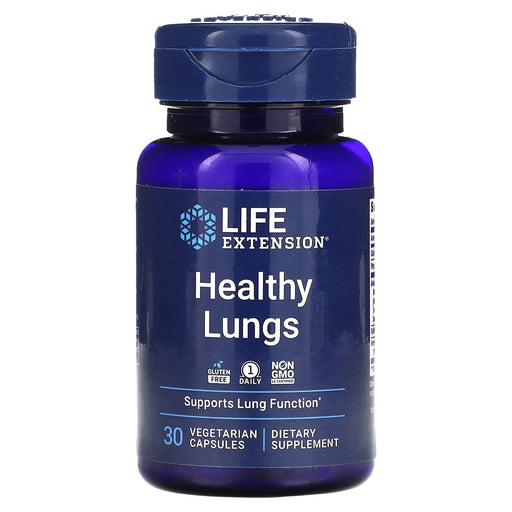
Support Respiratory & Lung Health with Targeted Supplements
Respiratory and lung health are essential components of overall well-being, as these vital organs are responsible for the exchange of oxygen and carbon dioxide, which is crucial for the proper functioning of all body systems. Supplements designed to support respiratory and lung health typically include a variety of vitamins, minerals, herbs, and other beneficial compounds that work together to promote clear breathing, lung function, and immune health.
Key Ingredients for Respiratory & Lung Health
Supplements designed to support respiratory and lung health often contain a combination of the following key ingredients:
- N-Acetyl Cysteine (NAC): NAC is a precursor to glutathione, a powerful antioxidant that helps protect the lungs from oxidative stress and inflammation. NAC may also help thin mucus, making it easier to expel from the lungs.
- Vitamin C: This essential vitamin is a potent antioxidant that supports immune function and helps protect the lungs from oxidative damage. Vitamin C also plays a role in the production of collagen, which is important for maintaining the structural integrity of lung tissue.
- Vitamin D: Vitamin D is crucial for immune health and has been shown to help reduce the risk of respiratory infections. Low levels of vitamin D have been linked to an increased risk of respiratory conditions, making adequate intake through diet, sunlight exposure, and supplementation important.
- Quercetin: This flavonoid has potent antioxidant and anti-inflammatory properties, which may help protect lung tissue from damage and support overall respiratory health. Quercetin may also help stabilize mast cells, reducing the release of histamine and other inflammatory compounds.
- Bromelain: Derived from pineapple, bromelain is a proteolytic enzyme that has anti-inflammatory properties. It may help reduce swelling and inflammation in the respiratory tract, promoting clearer breathing and lung function.
- Herbs: Certain herbs, such as eucalyptus, peppermint, and thyme, have been traditionally used to support respiratory health. These herbs contain compounds that may help soothe the respiratory tract, promote clear breathing, and support immune function.
Benefits of Respiratory & Lung Health Supplements
Incorporating supplements designed to support respiratory and lung health into your wellness routine may offer several potential benefits, including:
- Promoting Clear Breathing: Ingredients like NAC, quercetin, and bromelain may help reduce inflammation and mucus buildup in the respiratory tract, promoting clear breathing and lung function.
- Supporting Lung Health: Antioxidants like vitamin C and quercetin help protect lung tissue from oxidative stress and inflammation, supporting overall lung health and function.
- Boosting Immune Function: Vitamin C and vitamin D play crucial roles in immune health, helping to protect the respiratory system from infections and other challenges.
- Reducing Inflammation: Anti-inflammatory compounds like quercetin and bromelain may help reduce inflammation in the respiratory tract, promoting comfort and ease of breathing.
- Soothing the Respiratory Tract: Herbs like eucalyptus, peppermint, and thyme may help soothe and calm the respiratory tract, providing relief from occasional discomfort or irritation.
Choosing the Best Respiratory & Lung Health Supplement
When selecting a supplement to support respiratory and lung health, consider the following factors:
- Quality and Purity: Look for supplements that are manufactured by reputable brands, free from contaminants and artificial additives, and third-party tested for purity and potency.
- Effective Dosages: Choose supplements that provide clinically effective dosages of key ingredients like NAC, quercetin, and vitamin C and vitamin D, based on scientific research and expert recommendations.
- Synergistic Formulas: Opt for supplements that combine multiple lung-supportive ingredients for a synergistic effect, addressing various aspects of respiratory health.
- Bioavailability: Consider supplements that use high-quality, bioavailable forms of ingredients, such as acetylated NAC or quercetin phytosome, for optimal absorption and utilization by the body.
- Professional Guidance: Consult with a healthcare professional, such as a naturopathic doctor or integrative medicine specialist, to determine the best respiratory and lung health supplement for your individual needs and health status.
Maximizing the Benefits of Respiratory & Lung Health Supplements
To get the most out of your respiratory and lung health supplement, consider the following tips:
- Follow Dosage Instructions: Always adhere to the recommended dosage on the product label, and consult with your healthcare provider before starting any new supplement regimen, especially if you have pre-existing health conditions or are taking medications.
- Pair with a Healthy Lifestyle: While supplements can provide valuable support for respiratory and lung health, they should be used in conjunction with a balanced diet rich in fruits, vegetables, and anti-inflammatory foods, regular exercise, and stress management techniques.
- Stay Hydrated: Drinking plenty of water throughout the day helps keep mucus thin and easier to expel, promoting clear breathing and lung function.
- Practice Deep Breathing: Engage in deep breathing exercises or techniques like diaphragmatic breathing or pranayama to help strengthen the lungs, improve oxygenation, and promote relaxation.
- Avoid Lung Irritants: Minimize exposure to lung irritants like air pollution, smoke, and chemical fumes, which can contribute to oxidative stress and inflammation in the respiratory tract.
Support Your Breath of Life with Respiratory & Lung Health Supplements
If you're looking to support clear breathing, lung function, and overall respiratory health, a targeted supplement that combines key vitamins, minerals, herbs, and beneficial compounds may be a valuable addition to your wellness routine. By nourishing and protecting your lungs, you can help ensure that your body receives the vital oxygen it needs to thrive.
Experience the potential of science-backed respiratory and lung health supplements by exploring our curated selection of high-quality products. With a commitment to purity, efficacy, and your individual needs, Health Orchard is here to support you on your journey toward optimal breathing and lifelong lung vitality.
Frequently Asked Questions about Respiratory & Lung
1. What supplements are good for your lungs and breathing?
Several supplements may support lung health and breathing, including:
- Vitamin C: An antioxidant that helps protect lung tissue from oxidative stress
- Vitamin D: Supports immune function and may reduce inflammation in the airways
- N-acetylcysteine (NAC): Helps thin mucus and promote lung function
- Omega-3 fatty acids: May help reduce inflammation in the lungs and improve breathing
- Magnesium: May help relax bronchial muscles and improve airflow
Always consult with a healthcare professional before starting any new supplement regimen.
2. What vitamins are good for weak lungs?
Vitamins that may support lung health and function in people with weak lungs include:
- Vitamin C: Helps protect lung tissue from oxidative damage and supports immune function
- Vitamin D: May reduce inflammation in the airways and support overall lung health
- Vitamin E: An antioxidant that may help protect lung cells from damage
- B vitamins: Support energy production and may help improve breathing function
It is essential to consult with a healthcare professional to determine the most appropriate vitamins for your individual needs.
3. What is the best antioxidant supplement for lungs?
Some of the best antioxidant supplements for lung health include:
- Vitamin C: Helps protect lung tissue from oxidative stress and supports immune function
- Vitamin E: May help protect lung cells from damage and reduce inflammation
- N-acetylcysteine (NAC): Helps thin mucus, promote lung function, and replenish glutathione, a crucial antioxidant
- Quercetin: A flavonoid with antioxidant and anti-inflammatory properties that may support lung health
It is important to consult with a healthcare professional to determine the most suitable antioxidant supplement for your individual needs.
4. What vitamins help lung disease?
Vitamins that may support lung health in people with lung diseases include:
- Vitamin D: May reduce inflammation, improve immune function, and support overall lung health
- Vitamin C: Helps protect lung tissue from oxidative damage and may improve symptoms of respiratory conditions
- Vitamin E: An antioxidant that may help protect lung cells from damage and reduce inflammation
- B vitamins: Support energy production and may help improve breathing function
Always consult with a healthcare professional to determine the most appropriate vitamins for your specific lung condition and individual needs.
5. How to boost lung immune system?
To support your lung immune system, consider the following:
- Eat a balanced diet rich in fruits, vegetables, and whole grains to provide essential nutrients
- Stay hydrated by drinking plenty of water to keep mucus thin and easier to expel
- Exercise regularly to improve lung capacity and overall immune function
- Manage stress through relaxation techniques, as chronic stress can weaken the immune system
- Consider supplements such as vitamin C, vitamin D, and zinc to support immune function
Always consult with a healthcare professional before making significant changes to your diet or starting a new supplement regimen.












